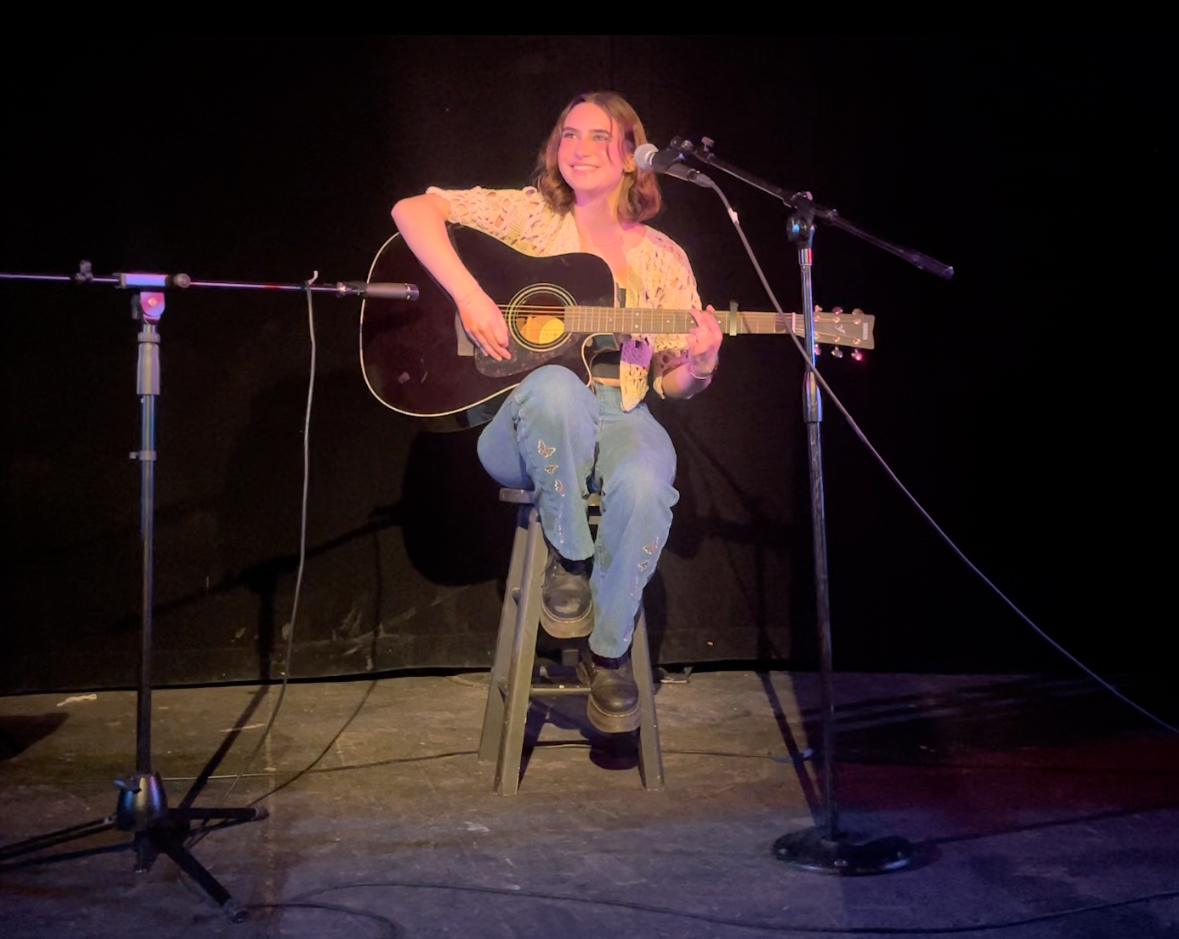Lena Moore is a rising fourth-year majoring in Theatre with a minor in Legal Studies. She plans to read War and Peace, Anna Karenina, Crime and Punishment and Dead Souls, and write a play that joins Russian literature and theater.
Tell me about your SURG topic.
Moore: I’m reading or revisiting four prominent Russian novels for dramatic themes and prominent aesthetics of Russian literature and common storytelling practices of Russian literature. Apparently there was a really prominent queer underground sexual marketplace in 19th century Russia. Russia has a really fascinating history with queerness and gender and censorship in that, in some ways, they were very progressive very soon with gender things because of the Bolshevik (Russian) Revolution, they kind of had to progress really quickly in that front, but they always had a lot of queer censorship. It was never and is still not a very safe place for queer people. I was wondering what their lives looked like, especially because a lot of characters in these Russian novels are famously queer-coded. I’m analyzing these dramatic themes, researching this historical event and then translating it into a play. I’ve never done a historical theater project before, so I’m super excited for that. Russian novels are always a billion different names and a billion different really complicated relationships. That’s the thing I’m really interested in looking at is the relationship webs in these novels and how can I do that in a play that’s only an hour and 20 minutes if these books are 900 pages. Not everybody has the attention span, especially nowadays, or the draw to sit down and read a 900-page book with a bunch of antiquated language. With something like theater, you sit down and you get to see it live and let it all happen and unfold before you without having to make the commitment to reading something that long. I want to share my love of Russian literature with people in the modern sphere especially because these stories don’t represent the queer experience and that’s something that a lot of people are more than ever really drawn to reading about and hearing about for awesome reasons. I am very excited about that for a future audience of this play.
How do you think this project will impact you in the long term?
Moore: If I decide to pursue writing, which is kind of where I’m at right now, I will certainly have to apply for a lot more grants in my life. This has given me a really great master class in how to get my point across, how to find reliable sources, how to talk to all the right people, and how to speak clinically about something artistic. I think that’s a really hard thing that artists have to do all the time is speak about whatever they’re writing or whatever they’re working on in a sterile way. That’s something that I think will certainly be useful in the future. I also maybe want to go into academia and playwriting, so this has certainly helped with that. It’s shown me how interdisciplinary research and theater and creative writing can be because I think that often people think that they live super separately. But it’s really valuable to view them together and be able to join passions and things that might seem like they don’t fit together through writing and research. Even just this year, the process of applying and the process of writing my proposal was a very unique challenge. It was a very valuable experience. I’m excited to see it through and see where else this goes and where else it can take me professionally, but also in my own creative practice.
Meet the other SURG Recipients!
